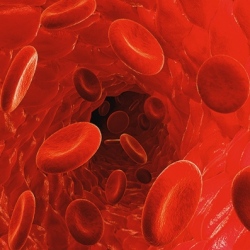
A team of Massachusetts General Hospital (MGH) and Harvard Medical School investigators has identified a pathway that appears to underlie the apparent ability of the diabetes drug metformin to both block the growth of human cancer cells and extend the lifespan of the C.elegans roundworm.
That finding implies that this single genetic pathway may play an important role in a wide range of organisms, including humans.
“We found that metformin reduces the traffic of molecules into and out of the nucleus, the ‘information center’ of the cell,” says Alexander Soukas, MD, PhD, of the MGH Center for Human Genetic Research, senior author of the study, published in the Thursday, Dec. 15 issue of Cell.
“Reduced nuclear traffic translates into the ability of the drug to block cancer growth and, remarkably, is also responsible for metformin’s ability to extend lifespan,” he said. “By shedding new light on metformin’s health-promoting effects, these results offer new potential ways that we can think about treating cancer and increasing healthy aging.”
Several studies have suggested that individuals taking metformin have a reduced risk of developing certain cancers and of dying from cancers that do develop. Current clinical trials are testing the impact of metformin on cancers of the breast, prostate and pancreas; and several research groups are working to identify its molecular targets.
Metformin’s ability to lower blood glucose in patients with type 2 diabetes appears to result from the drug’s effects on the liver. The drug reduces the liver’s ability to produce glucose for release into the bloodstream. Metformin has been thought to block the activity of mitochondria, structures that serve as the powerhouse of the cell.
But Soukas says more recent information suggests the mechanism is more complex. The Soukas team found a genetic pathway that slows the growth and extends the lifespan of C.elegans roundworms. That suggests that the roundworm could serve as a model for investigating the drug’s effects on cancer.*
“Amazingly, this pathway operates identically, whether in the worm or in human cancer cells,” says Soukas, who is an assistant professor of Medicine at Harvard Medical School. “Determining exactly how it slows cell growth will provide additional insights into novel therapeutic targets for cancer and possibly ways to manipulate the pathway to promote healthy aging.”**
Support for this study includes National Institutes of Health grants, a Broad Institute SPARC Grant, and the Ellison Medical Foundation New Scholar in Aging Award.
